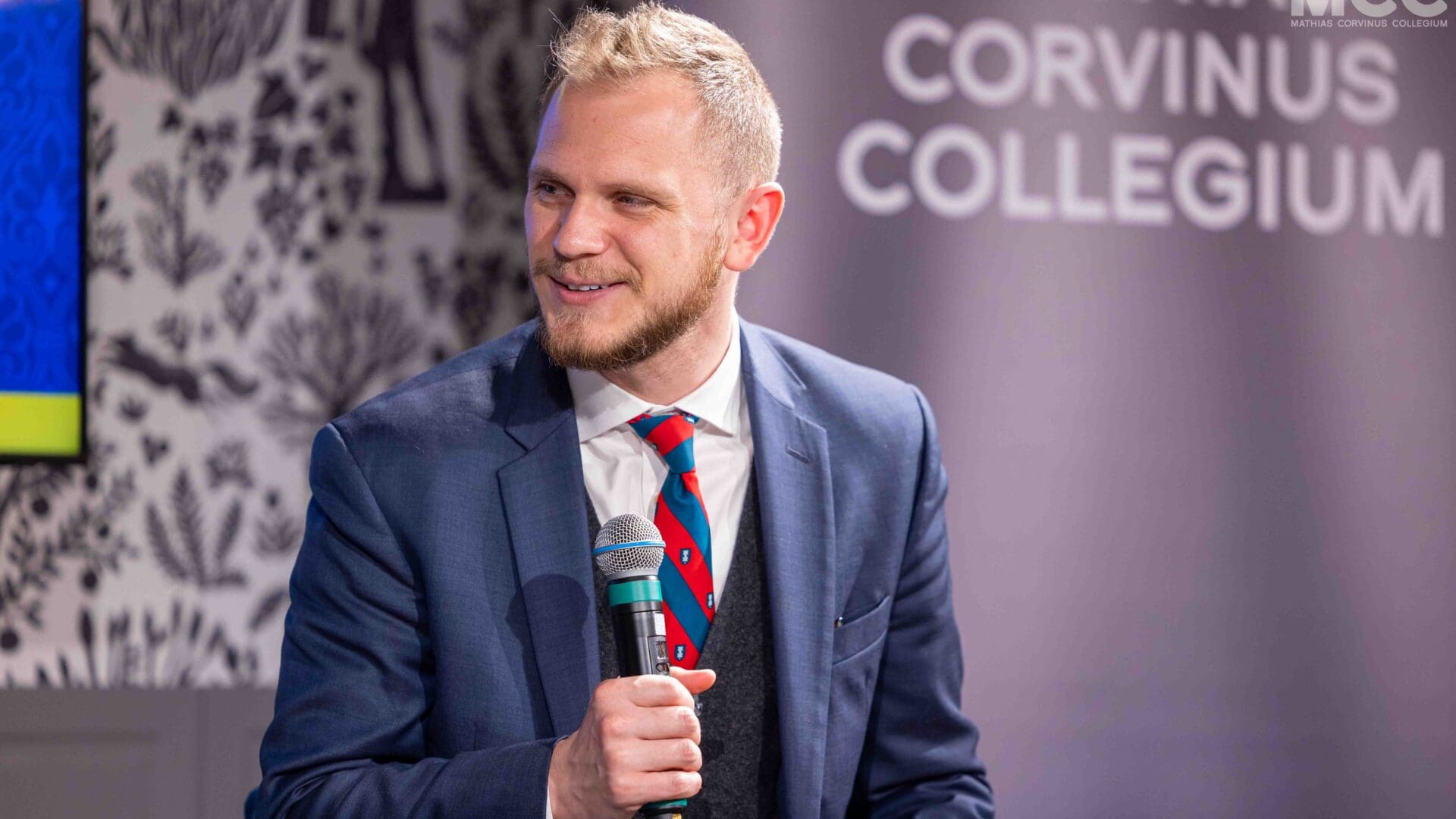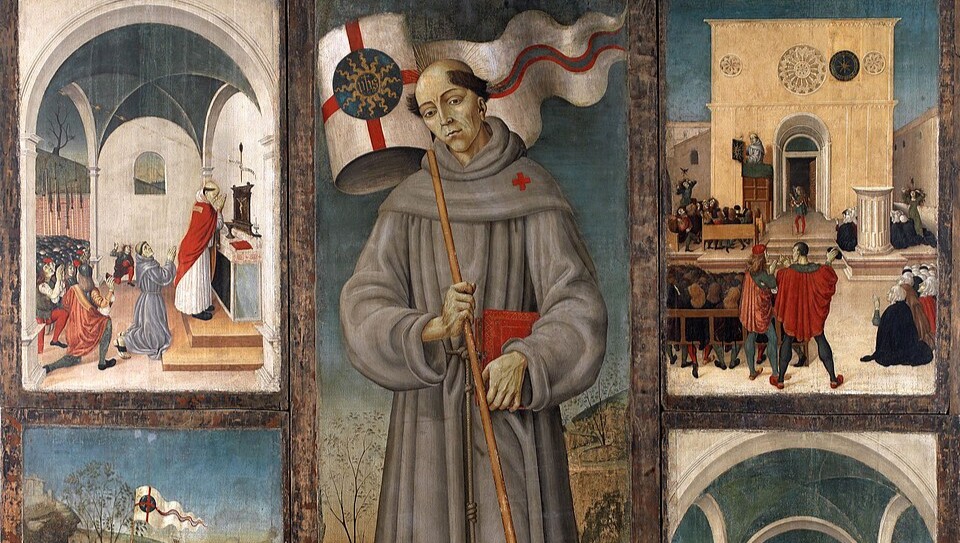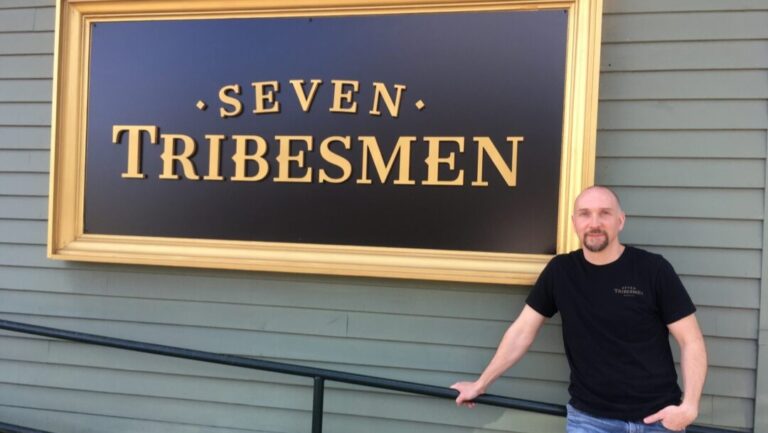John A. Burtka IV is President and Chief Executive Officer of the Intercollegiate Studies Institute. An alumnus of Hillsdale College, he earned a graduate degree in theology from La Faculté Jean Calvin in Aix-en-Provence, France. Previously, he served as Executive Director and Acting Editor at The American Conservative magazine. Edited and introduced by John Burtka, Gateway to Statesmanship: Selections from Xenophon to Churchill (2024) is a collection of seminal texts on statesmanship from ancient, Medieval, Renaissance, and modern scholars including Xenophon, Aristotle, Cicero, Augustine, Machiavelli, George Washington, Theodore Roosevelt, Winston Churchill, and more.
The following discussion took place at the Gateway to Statesmanship event of the MCC’s Budapest Lectures series on March 28, 2024. The conversation has been reordered and edited for length, flow, and clarity.
***
What inspired you to focus on statesmanship and its evolution in political thought over the centuries?
There is widespread dissatisfaction with our political leadership in Brussels, Washington, D.C., and throughout the West. The fundamental mission of ISI is educating and equipping the next generation of great American statesmen. I felt like there was a dearth of resources in the realm of statesmanship.
So, I turned to the ancient genre called the ‘mirrors-for-princes’. I went all the way back to texts from ancient Greece, Rome, India, China, the Byzantium, and the Middle Ages, culminating in the Renaissance and the modern era. I’m hoping that we can re-enchant our political imagination with these classic texts. Yesterday, I discovered that Saint Stephen, the first king of Hungary, wrote a mirror-for-princes book for his eldest son, which is available to this day. In it, he offered admonitions and guidelines to combine the political and moral virtues necessary for leadership.
Speaking of St. Stephen, he embraced the Catholic Church and brought Hungary into Western Christendom. How did Christianity influence the advice given to rulers?
Christianity had a profound effect. First, kings were no longer gods. The second shift, which you see in Augustine and Aquinas, is a reminder to the king that all his wealth and power will disappear when he dies. He will have to stand before the judgment seat of Christ and so he must be careful about his deeds on earth. There are many other contributions of Christianity to political theory.
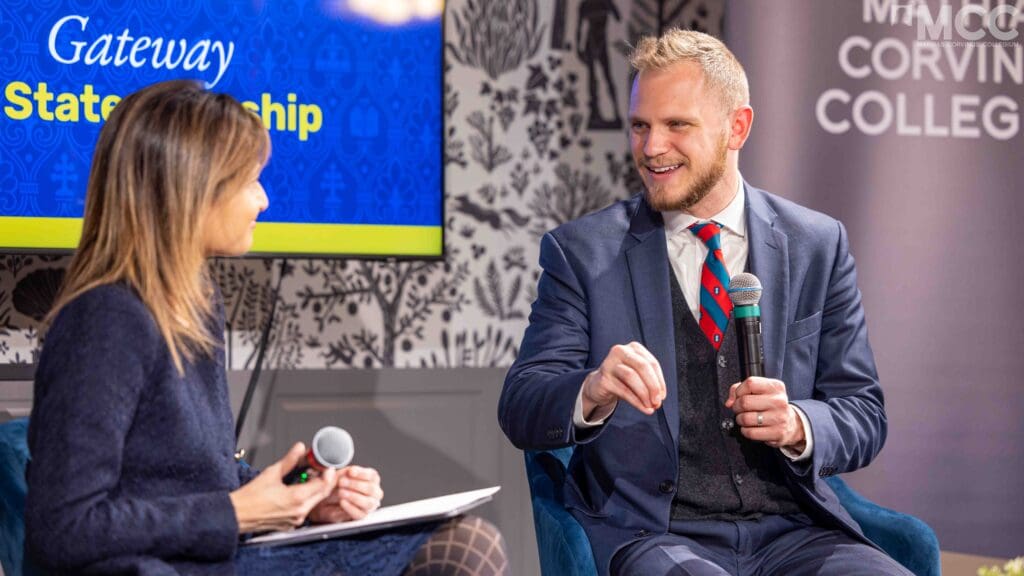
One school of thought blames Christianity for introducing weakness into European society. The paganism of the Romans and Germanic peoples emphasized strength, masculinity, and conquests. In contrast, Christianity claims that the meek will inherit the earth. What is your opinion?
To some extent, in The City of God, Augustine responds to the critique that Christianity weakened the strong Roman pagan culture. These kinds of Gospel admonitions refer to an individual’s relationship with his family or his neighbor. Turning the other cheek is applicable in a personal context. The logic is different when you’re talking about matters of state because you have duties.
I’m reading a book about an elder in Romania who was asked how Christians could fight wars. Aren’t they supposed to forgive their enemies? The elder said that you have to love your neighbor as yourself, which means loving your fellow citizens in your political community. But there is a duty to defend your community from foreign invasion and other threats. Look at the great Christian rulers like Constantine, Justinian, and St. Stephen or in more recent times, Charles de Gaulle or George Washington. Many mighty Christian political leaders have wielded just as much power and authority on behalf of their regime as pagan rulers. So, I think it’s a bogus charge.
Does religion play a role in developing statesmanship today?
I think it has to play a role. The moral side of the mirrors-for-princes tradition teaches self-mastery over the passions. This is a fundamental prerequisite to be a good leader.
You can’t rule or govern others if you can’t rule and govern yourself.
You can’t be shooting yourself in the foot through your own moral failings and choices if you’re going to be successful. Religion is the historic way in which those morals have been cultivated. It also gives leaders a sense that there’s someone bigger and something more important than yourself that you need to order your life around.
Protestantism has long shaped American society. Some scholars argue that wokeism is a corruption of the Protestant spirit. How do we recover religion so that it can once again contribute to the moral shaping of the next generation?
I largely agree with your framing of where Wokeism came from. It’s essentially a corruption of Protestantism. And, I also agree with your assessment that America, most fundamentally, is Protestant in its religious and political framework. Alexis de Tocqueville predicts in Democracy in America that Americans will embrace Catholicism, which I was quite surprised to see (I’m Eastern Orthodox). Against the backdrop of the individuality, energy, and transience in American culture, Tocqueville thought that the structure and stability offered by Catholic liturgy would appeal to Americans who are burned out from the excesses of their Protestant work ethic.
Your book also includes writings from China, India, and the Islamic world. What are the key differences between the advice given by Western and non-Western sources?
I have drawn some general themes from the texts of Han Fei’s basic writings, Kautilya’s Arthashastra in India, and Al-Farabi’s aphorisms of a statesman. First, I found the advice by the Eastern scholars to be more realist. Not to be overly simplistic, but they foreshadowed a lot of what Machiavelli would have to say. I found that the Western, especially Christian texts, focused more on piety and the moral, ethical qualities necessary for good leadership, whereas the Eastern texts focused on acquiring and wielding political power.
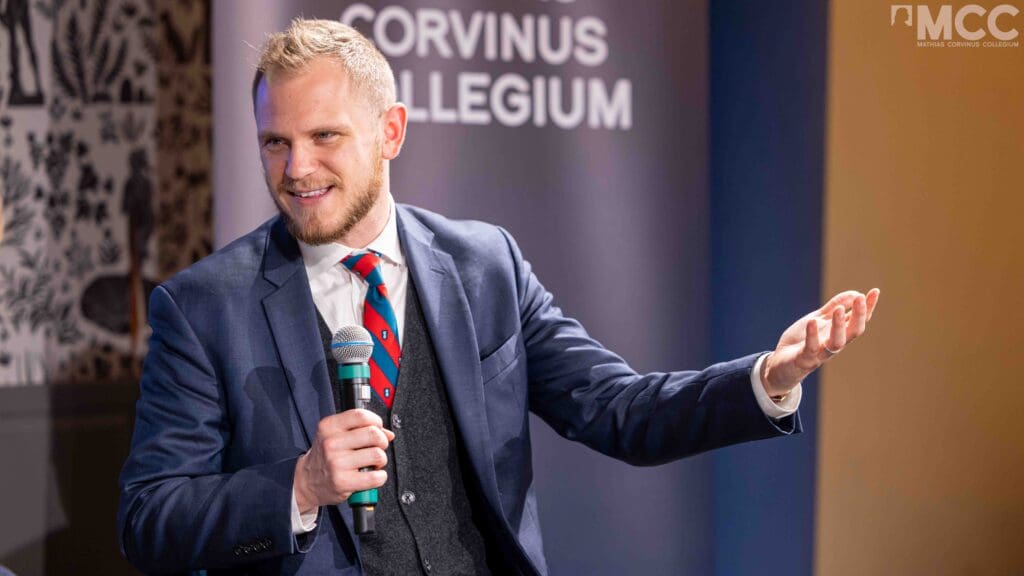
I would describe Han Fei’s text as sort of cruel. He advises ministers to be cold-hearted and manipulative, which differs from Machiavelli’s politically pragmatic teachings. Is the former applicable today to Xi Jinping’s China?
At least in my study for this book, I don’t see much emphasis in Han Fei’s work on winning over the hearts of the people. At face value, I think it is cruel. A lot of the advice is cruel. But I also think there is a lot of emphasis on how to bring order to chaos.
Instability is the number one threat to a ruler.
For Han Fei, any means will justify the ends of securing order. I think it’s fair to say that Xi Jinping draws some degree of inspiration from this approach.
Should we, in the West, also learn from that?
I mention, at the beginning of the book, that there’s some continuity between all these different cultures and texts. I also note that some of the advice is evil or cruel and so it requires careful discernment. This comes back to the education of a prince. How do you cultivate the cardinal virtue of prudence? Hopefully once you do, you can pick out the jewels of wisdom from the dung heap.
Let’s talk about Cicero. He lamented the rise of populist politicians and famously defended the Roman Republic against Julius Caesar. How can we apply his teachings to the current political scenario, where populism has been taking center stage in the United States and Europe?
Cicero was very skeptical of people that made visceral, populist appeals and favored redistributing wealth. He was fundamentally an elitist. He believed that a few, like the senatorial family, should rule and they should have an aristocratic upbringing and formation.
Cicero is most relevant in his insistence that a great political leader should pursue the common good and have a clear focus on the flourishing of the whole regime. A leader should not pursue personal financial interests or narrow class-based interests; his highest aim should be service to the res publica. The flip side is that Cicero failed to restore Roman republicanism. Meanwhile, Caesar Augustus was successful, and the Roman Empire had its own virtues.
So, what is the relationship between an effective statesman and populism?
Populism is a warning sign that there are serious structural, moral, and competency problems with the people running society. It is not necessarily good or bad. Populism is an indicator that something is really wrong, and we need to pay attention to what’s being overlooked. Ultimately, a great leader would identify those legitimate shared grievances and then channel them into a constructive paradigm for governing.
But I think those two tasks are different. It’s much easier to channel the anger in order to gain political power. It’s a lot harder to go from being the opposition to then building and shaping a new leadership class that governs better than the previous regime.
You’ve written about ‘aristo-populism’. Is this term related to this problem?
This term, which Patrick Deneen expands upon in his most recent book, refers to the need for alignment between the interests of the elites and that of the people. There was a period in American history when elite financial interests were aligned with the national interest. Now, those are diverging. I’m calling for cultivating a contemporary sense of noblesse oblige and a solidarity with everyday people, while still maintaining a class of people [who can govern] through merit and who care about culture, art, and serious liberal arts education.

What do you make of Napoleon Bonaparte? Was he a great statesman?
Dan Mahoney, who is a professor involved with ISI, has this line—Napoleon was as great as you can be without being good. Napoleon’s life, deeds, and military maxims play a profound role in the entrepreneurship culture. They embrace him unabashedly and enthusiastically. Look at the number of streets and monuments named after Napoleon in France, Italy, and all over, even though he had vices like inordinate pride. From a military or historical standpoint, there’s no denying the greatness in his statesmanship.
Although he wasn’t morally excellent…
It’s very rare to see the perfection of moral virtues in a political leader because, as Cicero said, political leaders have a desire to wield sole authority. Great political leaders like Napoleon have extremes of human excellence in certain areas, and in other areas their vices are exaggerated as well.
Do you believe in a natural aristocracy?
I believe there’s always an elite class of people with certain excellences that are going to be in charge to some degree. You should have a meritocratic system to identify talent, which is accessible to everyone from the population, where people can become cultured and shaped into great leaders. I do think a natural aristocracy is possible but there’s more to explore there, which would be a conversation for another day.
How can we have a new class of statesmen when all our current institutions are creating elites that, as you said, have little in common with mainstream Americans?
We need a strategy to shape the next generation and hopefully it’ll pay off sooner than later, even if it’s ten or twenty years down the road. We have to build new institutions, as we are doing at ISI and great classical liberal arts colleges are doing to another extent. We also have to reform or at least mitigate the negative activities of current institutions.
Then, if you go back to the point of this book, we have to revive the one-on-one model of learning between a mentor and a pupil that was so potent throughout history. They learned either in the same time or sometimes across time, like you can make Cicero or Machiavelli your mentor.
In the modern era, the focus has shifted from kings to institutions. Leaders now have to navigate a radically different political landscape. James Burnham spoke about the rise of technocrats and the managerial revolution in the mid-20th century. What are the qualities that we should consciously cultivate in the next generation of statesmen?
You’re absolutely right. There’s a shift away from classically understood statesmanship towards management bureaucracy. The think tank professionals in D.C. talk about foreign policy as though they were consultants for McKinsey. It’s a scientific and bureaucratic way of thinking.
My book points out that
the key components of statesmanship are essentially the same in all times and places.
Look at St. Stephen’s crown jewels in the Hungarian Parliament. There is the crown, which is a symbol of piety. Piety still applies today. Then there is the scepter, which is about maintaining justice. You have the orb, which is about power. There is an appropriate way in the parliamentary system in which the Prime Minister can exercise power effectively. And finally, there is the sword for protection from crime and external invasion. Those core fundamentals are the same in our own era.
According to the left, this Hungarian example does not apply to the country’s current leadership. They use terms like right-wing authoritarianism and illiberal democracy for East-Central Europe. Is the definition of statesmanship different on either side of the political spectrum?
I would say that they have a hegemonic mindset; every regime has to look like Western liberalism in 2024. It’s a very narrow and secular approach. We’re witnessing the dying gasp of the Atlanticist, neoliberal approach and the emergence of a multipolar world. I laugh because in one sense there might be something good about that, but there’s also something dangerous about this transition from the old to whatever is coming next.
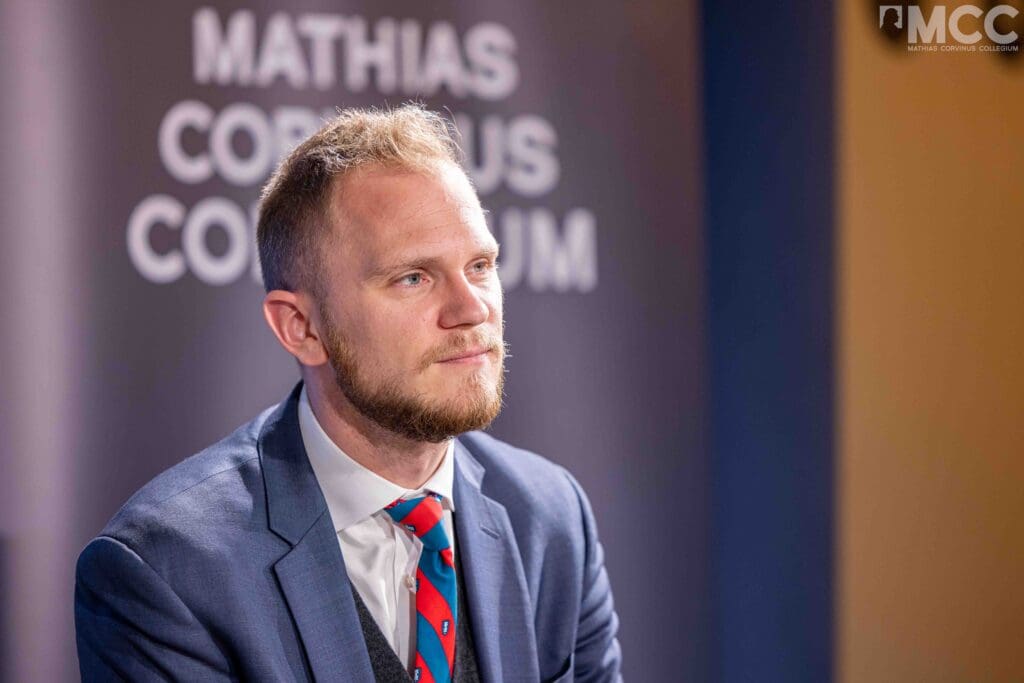
Where do you see Donald Trump in this picture of statesmanship?
It’s the question of the hour. He successfully identified key failures of the elite class—whether it was on immigration, foreign policy, or trade—and exposed them in 2015. At that time, Republicans and Democrats had blinders on those issues. He has been able to win over and persuade a majority of Americans that a new paradigm is needed. As to whether he, as an individual, will be able to usher in this new paradigm himself, I have more skepticism.
His actions on Supreme Court justices and China will have a very powerful, lasting legacy. But there are some chronic, even character related, issues that lead him to be susceptible to flattery and struggle with personnel selection. These would continue to plague a second [White House] administration, even though a second Trump Administration would be a much better alternative to the one that we have now.
Which statesman from the past would be best suited to address the current global crises, for example, in Ukraine and Israel/Palestine?
I admire Charles de Gaulle. I included his text, The Edge of the Sword, in which you can see his strong individuality, ambition, and sense of destiny. He had a clear gut sense that he was going to lead France one day. He wrote this book in his early 30s (it wasn’t published until he was 41) as his own mirrors-for-princes, and then he became the man that he was writing about. He was strong in his Catholic faith and devoted to a particular idea of France as a nation of its religious traditions. This is relevant today, as we’re looking to find some grounding for our civilization. A leader with de Gaulle’s independence for national greatness is applicable.
Finally, would you advise against following any examples from the past?
Cicero—I struggle with him. His moral advice played a profound role in shaping church fathers, Thomas More, and many other great statesmen. He places so much emphasis on duty and the moral component of leadership, but lacks the political savviness needed to navigate the 21st century.

